Thanks to Frank Dorrian for this fantastic guest post on how to properly use mental illness in writing. There are many time I read a book, and as a I hold a degree in Psychology, think to myself about how the character does not fit the the psychological issues described. 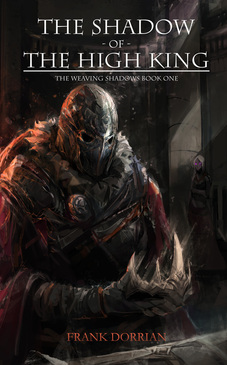 Dark, or Grimdark, fantasy has gathered a fair amount of attention and respect over the last few years. Thanks to the success of series such as A Song of Ice and Fire by George Martin, and its offshoot TV show Game of Thrones, dark fantasy has come to find acceptance amongst many mainstream audiences that had previously shunned the fantasy genre. Other Grimdark fantasy writers who have come to prominence in recent years, such as Mark Lawrence and Joe Abercrombie, have also contributed to the genre’s rise from obscurity into grime-covered brilliance. Games such as the Dark Souls series have become increasingly popular too, bringing its dark Japanese take on western fantasy to an ever-increasing audience. Part of dark/Grimdark fantasy’s appeal is the element of realism that runs through much of it – the dash of reality that shocks the reader, pulls on their emotions and leaves them asking for more, however traumatic. When writing my novel, The Shadow of the High King, one of the routes towards Grimdark realism I chose was to implement mental illness amongst my characters. I have a background in mental health nursing, and I can tell you – the reality is far, far darker than anything Hollywood can throw at you. It makes for some seriously interesting, and dark, characters to write about. While I have this experience to draw on when creating my characters, I’m aware most others probably don’t. Many people I’ve spoken to just starting out writing their own dark or Grimdark fantasy novels often struggle with making their characters convincing, and this same path is the one I always suggest. With that in mind, I thought I’d compile a short list other fledgling writers looking to create realistic, disturbed, grim characters themselves can draw upon. How to Successfully use Mental Illness to create Dark Characters Reality is Grimmer Than Hollywood Make it realistic – the mainstream media is full of misconceptions of what mental illnesses actually are, particular the more well-known forms of it like schizophrenia (it’s not ‘split-personality disorder’!) and bipolar affective disorder (it’s not mood swings!). The true darkness of these illnesses is far grimmer and more traumatic that anything a movie producer can portray, do your research on them and you’ll see – www.mind.org has a wealth of information for you to draw upon. Shape the Past, the Present and the Future Mental illness has an enormous impact upon people’s lives in reality, and you should let it have the same impact upon the characters in your story. When did it first appear? How do their symptoms manifest themselves? Do they have trigger factors that you could base scenes around? Perhaps they’re a veteran warrior struggling to cope in life with the symptoms of what we understand nowadays to be PTSD? You could base an entire story around such things. Strengths and Weaknesses A good one for building interesting characters. Do the symptoms of your character’s mental illness manifest themselves as paranoia, suspicion, or fear? Or do they emerge as uncontrollable, manic rage and erratic, dangerous behaviour that could scupper their carefully-laid plans and destroy friendships? Collateral Damage As hinted at above, what do the symptoms of their illness spell for those around your characters? In reality, mental illness is a destroyer of family, friendship, employment, and physical wellbeing, and there’s no reason you can’t turn this to advantage in your own story. After all, readers hate happiness and love crisis and confrontation – how does their behaviour impact on the world around them? Psychological vs Psychiatric Something people frequently confuse, there’s a massive difference between the two. The easiest way to explain it is that psychiatry refers to brain chemistry – mental illnesses like depression, schizophrenia, etc., where psychology deals with how people think and formulate their thoughts and feelings, and the disorders based around it are what are known as ‘personality disorders’, not mental illnesses. The two can exist together, though, and both have an impact upon each other. Personality disorders are also a fascinating subject that you can use to give your characters some much needed, troubled, realistic depth – as they tend to stem from traumatic childhoods and later lead to people struggling to cope with the stresses of life – such things could even serve as a prologue, or first chapter of your book. Connect with Frank on his website, or on social media: Facebook: www.facebook.com/grimfranky Twitter: www.twitter.com/FrankDorrian LinkedIn: www.linkedin.com/in/frank-dorrian-9a4885125?trk=hp-identity-name Goodreads: www.goodreads.com/author/show/15420160.Frank_Dorrian Grab a print copy of his book The Shadow of the High King on Amazon or pre order the ebook, which will be released on August 30. 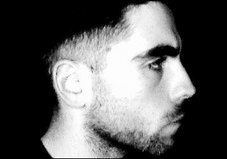 Author Bio: Frank Dorrian was born in 1987 in Liverpool – his hometown, a post-industrial cityscape, served as poignant inspiration for his creative efforts. He would commence writing in earnest during his teenage years, composing stories to sate desires of both expression and introspection. Today, Frank is a qualified mental health nurse. He works in the field with people suffering severe psychiatric and psychological disorders, and additionally offers private mind coaching sessions for those needing a refreshing take on life’s trials. When not writing, Frank spends his spare time reading, playing computer games and attending a martial arts gym. He has previously competed as a fighter domestically in the UK and abroad in Thailand. His first book, The Shadow of the High King, a dark fantasy novel, will be released 30th August 2016.
0 Comments
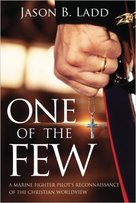 After making an initial inquiry, I was romanced by Westbow Press when it came time to publish One of the Few, and I almost went with them. But in the end, I didn’t. I called it off, and for one very good reason. First let me say that I think working with Westbow would have been a very positive experience. Based on multiple phone conversations, including a conference call including three representatives at once, I believe the customer experience and final product would have been top-notch. And to have the recognizable Westbow icon stamped on the spine—that was an enticing incentive to go with such a reputable organization. In other words, I have the utmost respect for their people and their product. It was the process that made me second-guess if it was the right decision for my book. Like many assisted self-publishing arms of major publishing houses (Westbow is a division of Thomas Nelson and Zondervan), there were several packages ranging from $1,099 to $17,999. But in my case, I had already done a lot of the work. The book had passed under dozens of eyes before getting a final professional edit. The cover was already chosen and professionally designed. The entire book was written! It just needed interior design, publication, distribution, and marketing. And marketing is now largely expected from the authors, even when using traditional publishers in many cases. I raised nearly $8,000 during a pre-order crowd-publishing campaign on Publishizer.com. In the end, it came down to one final decision: Do I spend the money myself to self-publish, or give it to an assisted self-publishing house? I consulted with one of my launch team members who served as a business advisor. He had a strong distaste for assisted self-publishing. And what he told me next shaped my ultimate decision to go full-monty on self-publishing: “They stand to gain, but assume none of the risk.” He was right. I had done most of the heavy lifting and made most of the decisions upon which my book would succeed or fail. The last few steps could be easily accomplished using CreateSpace (design, publication, and distribution) and social media (marketing). Granted, and $18,000-dollar package might unleash the kind of industry magic that skyrockets authors to fame. But what if it didn’t? I called Westbow that night and told them, “I’m sorry. It’s not you. It’s me.” I self-published the paperback through CreateSpace, the hardcover through Ingram Spark (Lightning Source), the Kindle version through Kindle Direct Publishing, as well as an audiobook version (narrated by the author, or course) through ACX (Audible). Has the book skyrocketed to success? No. Not yet. But I learned a lot about the book industry and about self publishing, and in my case, I think it was the right call. And about the Westbow logo on the spine? It would have been nice. But the logo on the spine of One of the Few now has even more meaning. I named my publishing imprint after our son Boone Shepherd whom we lost in April of 2015. His hand is holding a Shepherd’s staff, raised in final victory, leading the way.  Jason B. Ladd is an award-winning author and USMC veteran. He has flown the F/A-18 "Hornet" and the F-16 "Fighting Falcon" as an instructor pilot. He is also the creator of IndieListers.com, the web's largest online database of book promotion results. Learn more about him on his website, or follow him on his Facebook Page. Thanks to Lisa Rapko for sharing her experience on writing and becoming a hybrid author. A hybrid author is both published with a press, and self-published. More and more authors are trying their own hand at the publishing process, while still keeping the stability of having a publishing house for some titles.
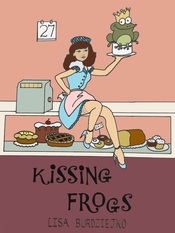 I didn't start out wanting to be a writer. In fact, I graduated from the University of Scranton, Pennsylvania in 1991 with a degree in Criminal Justice. Since then, I've worked very serious jobs in law enforcement and social work, with my main focus being my two children. During my divorce in 2005, I found refuge in an anonymous online diary. I was very sarcastic with my entries and developed a very large following. I thought writing a sarcastic book about my experience as a military wife could be very theraputic, and it was. Still Breathing was published in 2007. I knew nothing about publishing, googled companies, and submitted my manuscript to the first company on the list. They responded shortly after. How lucky is that? Publish America (now American Star Books) were a good experience for me. It didn't cost me anything. They made money off my book and I got a small percentage of the royalties. The only complaint I had was I think they charged my readers too much for the book. But then again, if it were my choice I would probably give them away just to have people read them. I published two more books with Publish America. Before She Was Babci which was a tribute to my grandmother, and Diary of the Dysfunctional. My recent book, Kissing Frogs : A Modern-Day Fractured Fairy Tale, was by far the most fun to research and write. My greatest satisfaction from doing this book would be to make my readers laugh out loud. Although I wrote the "rules for on-line dating" in a funny way, I would also like for women to keep them in mind if they choose the on-line dating scene. Unfortunately, in my day job, I've seen several women become victims during an on-line encounter. I would never in any way blame the victim, however if a few simple precautionary rules were followed they just might have been able to avoid the assaults. As simple and as much fun as I want this reading experience to be, the social worker in me couldn't help putting in some safety tips. Kissing Frogs centers on single mom, Ethel Funt's experience getting back into the dating scene via lovebycupid.com. She turns forty at the same time her son leaves for college. It captures her excitement, anxiety and laughable moments as she learns the rules of the pond have changed in the years since she dated and she must kiss many frogs before finding her prince. I self-published Kissing Frogs via Amazon.com. This way I was able to make the paperback book available for just $8.99. It is also available in Kindle version. 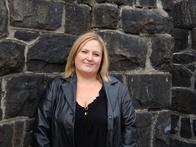 Lisa Burdziejko graduated from the University of Scranton, Pennsylvania with a degree in Criminal Justice in 1991. She’s spent the last twenty-four years working in law enforcement and social work. Writing fiction became a guilty pleasure that resulted in the release of her first book, Still Breathing in 2007. The books Before She Was Babci and Diary of the Dysfunctional followed. Lisa acknowledges Kissing Frogs as the most fun to research and write. She claims her greatest satisfaction from writing this book would be to make readers laugh out loud. Thanks to author Carys Jones for sharing her writing experiences. Finding the right time and place to write can help you become more productive and creative, but the most important thing? Just sitting down and doing it!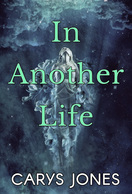 I’m lucky enough to have commandeered an entire room in my house for the sole purpose of writing! When I moved in the walls were already pink which felt like fate guiding me to where I should set up my trusty pink laptop (which is missing a few keys but I can’t bear to part with it) and forge my writing base. I pretty much write every day. There are of course exceptions but generally I try and stick to my daily routine. I write first thing in the morning as my mind is sharper then. I have daily word targets that I stick to. The targets are scrawled down along with my all my jumbled notes in my assortment of notebooks which are stacked beside my laptop. The desk where I write is my self-created little corner of heaven. I’ve covered it with all my favourite things; like my Disney ornaments and pictures of my friends. On the walls are more pictures and also all the programs from the ballets I’ve been to with my Mum. I like to surround myself with things that make me happy, so that when I’m writing a particularly intense scene I can always look up and see something that makes me smile : ) I’m very disciplined with my writing as I’ve found that works for me. I set myself deadlines and do my best to stick to them. And I’m never alone when I’m writing. My beloved dog, Rollo, always comes and sits in his little bed of cushions on the other side of my desk. Sometimes he snores so loud that I lose my train of thought but I love having him with me! About Carys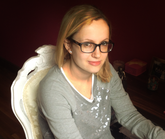 Carys Jones loves nothing more than to write and create stories which ignite the reader's imagination. Based in Shropshire, England, Carys lives with her husband, two guinea pigs and her adored canine companion Rollo. When she's not writing, Carys likes to indulge her inner geek by watching science- fiction films or playing video games. She lists John Green, Jodi Picoult and Virginia Andrews as her favorite authors and draws inspiration for her own work from anything and everything. To Carys, there is no greater feeling then when you lose yourself in a great story and it is that feeling of ultimate escapism which she tries to bring to her books. For more information about Carys you can connect with her in any of these places: visit her website, her blog, find her on Facebook, Goodreads, or follow her on Twitter Book 3 in my dystopian romance series is now available for pre-order on Amazon.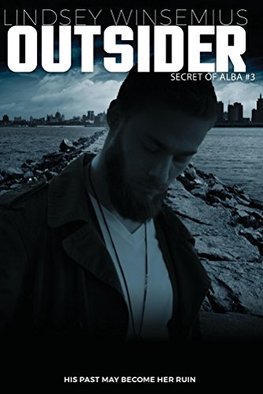 The third book in my action-packed romance series was definitely the most challenging for me. I have a whole new level of respect for series writers. It can become very tricky to keep writing into the same series, particularly when you continue following a related plot-line. There were several times I thought I'd written myself into a corner. But then my inventive characters were come up with a solution I would never have imagined, and off we'd go again. I was very excited to write Vick's story after he played a more major role than I anticipated in Book 2, . He's got some real mommy issues, and is forced to face his twisted past. And I got to show a softer side to our dear prickly Helen, who's worked so hard throughout our books to remain the upstanding citizen and future Senator of Law. Marcus, Aerina, Lina, and Jay all continue to play out their stories here, and everyone's favorite evil President returns with some more parenting tips. I hope you'll give the series a try. Both Romance readers and Dystopian / Post apocalyptic readers have enjoyed the books All the books are on sale on Amazon until Outsider's release date on September 22, so you can grab them all for under $3. I also have a giveaway going on for anyone who pre-orders Outsider before Sept 22. 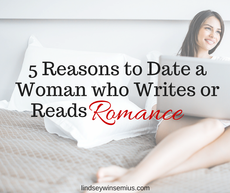 Thanks to my dear author friend K.M. Neuhold for this spicy guest post about women who read and write erotica / romance. If you like your romance with a little heat and a lot of humor, check out her New Adult & Contemporary Romance books on Amazon or visit her website for more buying options. Why women who read or write romance are better girlfriends: 1. She thinks about sex most of the day so she’s pretty much always ready to go. Let’s face it, for a woman sex is 90% mental, 10% physical. So, when a woman spends all day with sex on the brain it’s unlikely she’ll turn you down when your engine is revving. 2. She’s creative in bed. Romance/erotica is full of all kinds of sex: different positions, locations, and all kinds of kinky fun that you didn’t know you might be into. Believe me, when she reads a spicy scene full of things she hasn’t tried before she’s going to be really curious to give it a whirl in real life. So make sure you’ve limbered up. 3. She won’t mind if you ignore her for a few hours, because she’ll be ignoring you too while she spends time with her book boyfriends. 4. She knows how to talk dirty. I hope you’ve brushed up on your dirty talk because I guarantee she’ll be all over it, and have some filthy things of her own to add. Nobody talks dirtier than a bad boy book boyfriend, and she’s already written her own script in her head of naughty things to say to get you going. 5. She’s a hopeless romantic so even small gestures you make to show you care will mean the world to her. So go ahead, leave a note on the refrigerator that says ‘I love you’ and watch her melt…and then throw her panties at you. You’re welcome ;).  About K.M. Neuhold I am a contemporary romance author with a love of nerd culture and a passion for writing strong, independent female characters. I am also an avid reader of romance, sci fi, fantasy, and horror. Follow me on Amazon, Facebook, or on my website. 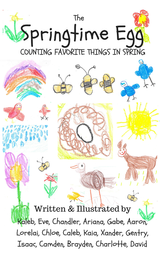 I love everything about books and being a writer. I get so much joy from reading and writing, and sharing my love of literature with those around me. My kids both share my love of books, and it is such an adventure to introduce them to classic favorites and discovering new favorites together. I wanted to share my love of writing, and the special feeling of being an author, with my preschool-age daughter Ariana and her classmates. After being a guest reader in her classroom, I had the idea of creating a book with the children. My daughter's teacher loved the idea, and I spent a morning working with the class to create The Springtime Egg. The book written and illustrated by her class--Kaleb, Eve, Chandler, Ariana, Gabe, Aaron, Lorelai, Chloe, Caleb, Kaia, Xander, Gentry, Isaac, Camden, Charlotte, David, & Brayden--is now available on Amazon.com. The kids came up with the idea of writing a story about a duck and her egg. Each child described their favorite weather and springtime activity that was happening while our egg refused to hatch. Finally, when spring was in full bloom, our egg hatched and a duckling emerged. Once our story was complete, each child illustrated the page they described. I created the cover using the children’s illustrations. I put the book together and published it on Amazon. It is now available in print or ebook for Kindle or Kindle App. I think it is so neat to teach them about the writing and publishing process, and to show them how even young children can accomplish something spectacular. I'm so proud of these kids! You can see the book on Amazon. It is free to download right now on Kindle or Kindle App! I think teaching children at a young age to see the magic in books is crucial. I am blessed to work with individuals who value literacy as much as I do, and we created Frantic Froggy, which promotes reading and indie authors. We've also published the book titled Frantic Froggy, which explores how one busy frog learns the simple joy of reading a book.
I created the infographic below with designer Andrew Frey (who has also created my awesome book covers!) to emphasize the importance of reading in children for their future. As authors, we all have causes that are dear to our hearts and find their way into our books. Author Michelle Diana Lowe shares her attempt at using literature to give voice to sufferers of PTSD.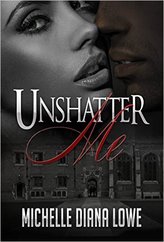 Guest Post by Michelle Diana Lowe There is a great tradition of mental illness in fiction. The most memorable book on this topic is Charlotte Brontë’s, Jane Eyre. Since the first publication of Brontë’s classic novel in 1847, our understanding of mental health has changed considerably. Women who have a mental health problem are not locked away in attics, or spoken about by other people with fear or contempt, in the third person. No longer is mental illness seen as a disease, curse or punishment. Contemporary women have a voice, to tell their own stories. Stories that are honest, real and absorbing. I am an author who has written a romance book that delves into the subject of mental illness. My debut novel is called UnShatter Me. It was published by US Publisher, UrbanEdge in August 2015. UnShatter Me tells the riveting story of nineteen year old Alena Pavlis, a college student who is trying to heal from a traumatic childhood experience. The novel explores her deep-rooted issues, the challenges she faces with PTSD and the problems she has in her relationship with boyfriend and fellow student, Phillip Gregson. The book shows Alena’s momentous journey to recovery and how she tackles her past demons. It is a raw, gutsy story with a strong romantic thread running throughout. Some people say I am brave for writing this type of book. I say, I am doing my part to raise awareness of a very important subject that can sometimes be misrepresented in the media and press. In the literary world, authors have an opportunity to tell the true story of their hero or heroine, without negative stereotypes being played up or emphasized. We, as authors, give those with mental illness a real voice and platform to share their stories and experiences. So far, I have read one book on mental illness that I found immensely compelling. This book is Prozac Nation, by Elizabeth Wurtzel. Prozac Nation is a really good read and I highly recommend it. Reading this book helped me to understand what having a serious mental health problem actually felt like. I got so deep into the psyche of the female protagonist and was so connected to her. As an aloof nineteen year old undergrad reading this book, I could totally relate to what the lead character was saying. These are the five books on mental health that I would like to read this year: 1) She’s Come Undone, by Wally Lamb 2) Too Heavy a Yoke: Black Women and the Burden of Strength, by Chanequa Walker-Barnes 3) Mrs. Dalloway, by Virginia Woolf; Maureen Howard 4) I Never Promised You a Rose Garden, by Joanne Greenberg 5) Girl, Interrupted, by Susanna Kaysen It is important that authors like myself write books on mental health and mental illness to raise awareness in today’s society and to allow those who do not ordinarily get a chance to speak, to do just that. Thanks to Michelle Diana Lowe for sharing her story! You can grab a copy of her book UnShatter Me on Amazon. Normally I keep my posts to tips for authors and interesting info for readers. Writing is a passion of mine, but child welfare is even more so. I was contacted by Robert and inspired to share his writing journey, and his book, which will hopefully positively affect someone else. Robert donates more than half of his proceeds to child abuse prevention. -Lindsey Rarity from the Hallow: |
NEW!
|

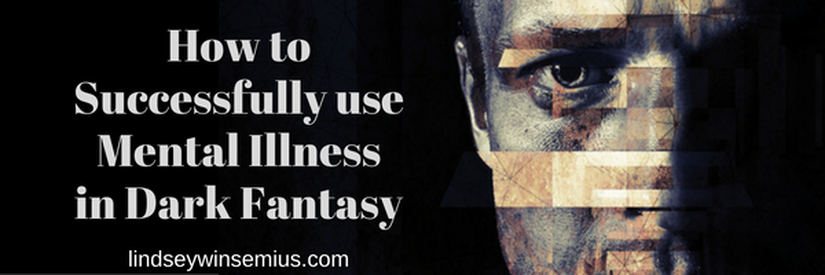
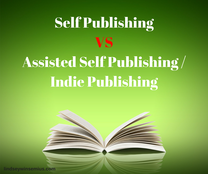
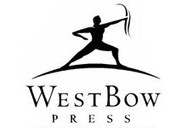
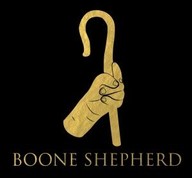
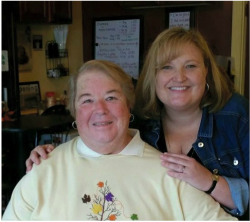
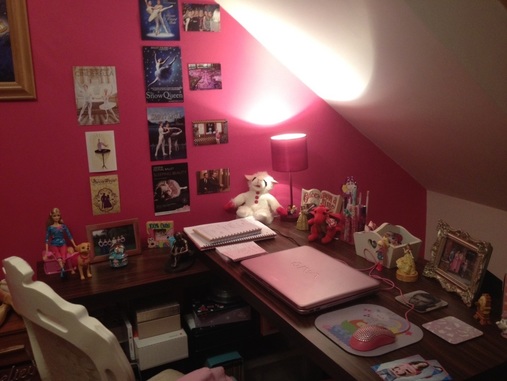
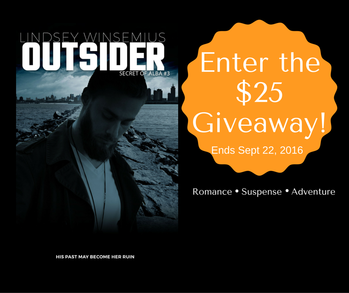
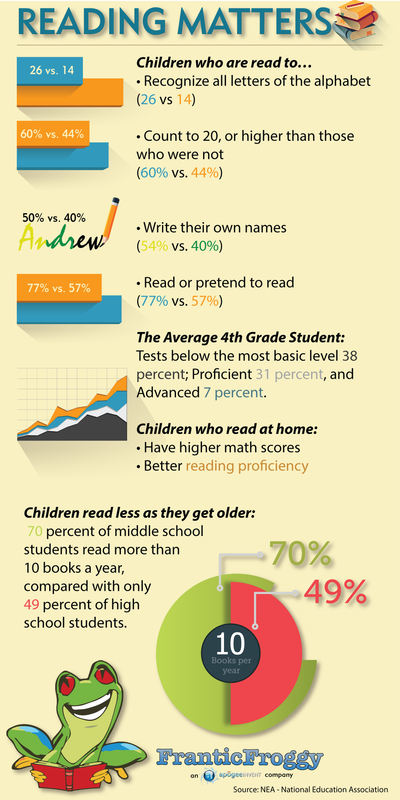
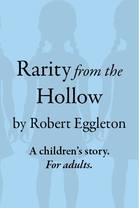
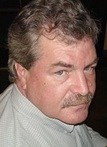
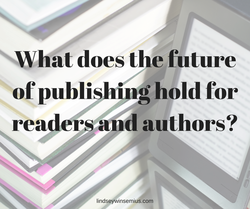

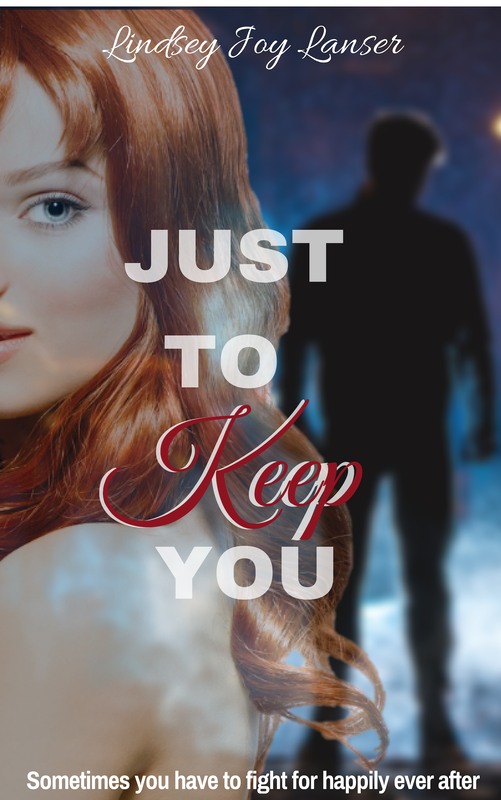
 RSS Feed
RSS Feed
